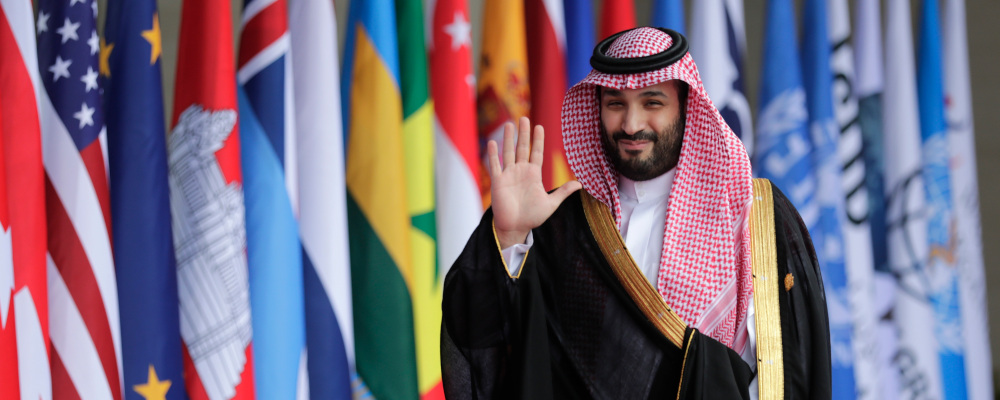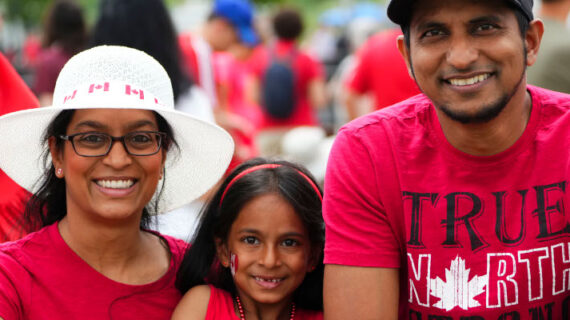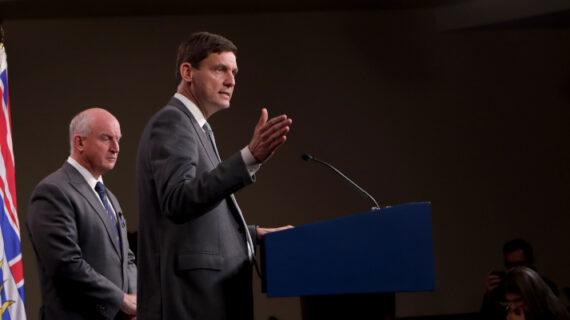The atrocities committed by Hamas on October 7 have put the Middle East back on Western nations’ geopolitical agenda with a vengeance. Now the conflict, as the destruction and civilian casualties mount, demands renewed attention of middle powers like Canada to the Middle East.
For Canada’s federal government, the profile of the Middle East had dropped amid the attempt to refocus foreign policy on the Indo-Pacific region and to deal with the threat of Russia in Europe. While the Israel-Hamas conflict in Gaza is the spark for a reconsideration of where the Middle East fits in Canada’s global agenda, that spark should also illume the quieter evolution of the Arab countries of the Persian Gulf into multi-dimensional geopolitical and geo-economic actors.
At the Manama Dialogue in Bahrain in mid-November, leaders and experts from across the Middle East and around the world gathered to explore these dynamics. While much of the discussion focused on addressing the Hamas-Israel conflict, the interconnections of the increasingly independently-minded members of the Gulf Cooperation Council—Bahrain, Kuwait, Oman, Qatar, Saudi Arabia, and the United Arab Emirates—were evident.
What does their rise mean for a smaller player like Canada? Most geostrategic debate in Canada is framed within the Pacific and Atlantic regions. But they do not exist in isolation. The Middle East’s relevance to world politics is high. It supplies almost half of the world’s oil which makes it essential to global economic stability.
The region is also poised to diversify its energy portfolio. Though Jasem Albudaiwi, secretary general of the Gulf Cooperation Council, criticized the “misguided narratives that alternative energy sources can replace fossil fuel,” others noted that the Middle East’s natural riches include abundant sunshine and wind.
The amassed wealth of these countries, most notably in Saudi Arabia and the United Arab Emirates, has turned them into financial hubs and major foreign investors, as well as magnets for immigrants from South Asia and beyond. Qatar, often seen as a disruptor in the region, has also shown itself as a conflict mediator, most recently in conjunction with the United States in negotiating the now-lapsed Israel-Hamas ceasefire.
The region is a factor in Canadian priorities in the Indo-Pacific and Euro-Atlantic. For instance, Iran exports weapons to Russia, notably the drones assaulting Ukraine’s civilian infrastructure and population centres.
Russia, as part of the OPEC+ format, also influences world energy prices, a key factor in global security, noted Amos Hochstein, U.S. President Joe Biden’s senior energy adviser. Moreover, Russia’s military presence in Syria constrains Israel’s behaviour, giving Hezbollah and Iran more latitude.
Nonetheless, Russia gained hardly a mention at the Manama Dialogue, a sign of how its ill-judged obsession with Ukraine has weakened its overall position in the Middle East, especially as an effective go-between on regional issues, as was evident over the years of negotiations over Iran’s nuclear program. Its flat-out rhetorical embrace of Hamas in the conflict is a sign of that peripheralization.
The Gulf region is also a factor in the Indo-Pacific. It was striking how little China was talked about at the conference because the region economically has been trending towards increasing ties to the People’s Republic. Oil exports capture the dynamic: China is Saudi Arabia’s biggest oil export market, United Arab Emirates’s second biggest; Oman sends 90 percent of its oil there; China gets one million barrels a day in discounted oil (because of U.S. sanctions) from Iran. And initiatives like the Digital Silk Road have real attraction to the modernization efforts of regional governments, all of which have ambitious national development programs.
While China remains peripheral, for now, to security and political outcomes in the Middle East, its purchasing power has translated into more sway. Diplomatically, for example, this summer it helped broker a revival of diplomatic ties between Saudi Arabia and Iran; there are reports that it has leaned on Tehran to tamp down the likelihood of contagion beyond Israel and Hamas. China’s dependence on Middle East energy means it, like the United States, would look unfavourably at any threat to the safe transit of the crucial straits of Hormuz and Bab al-Mandab.
Iran is the animating fear. Beyond the seemingly ever-present threat of it getting a nuclear arsenal, the Gulf kingdoms are unsettled by its asymmetric “forward defence” strategy, in part built on a regional network of violent non-state actors like Hamas, Hezbollah, and Houthi groups in Yemen, and on deep political influence in Syria and Iraq, creating a loop of anxiety around Israel and the Arab kingdoms.
“No state has been so active, and perhaps as effective, as Iran in regional conflicts in modern times,” notes a 2019 report by the International Institute for Strategic Studies. The fact that many of the kingdoms have sizable Shiite populations further unsettles their Sunni royalties, despite Iran’s poor track record in cultivating links to these populations, the report adds.
American and British military officials at the conference described additions to their armed forces in the eastern Mediterranean and the Persian Gulf since October 7 as designed to deter those who might seek to exploit the Israel-Hamas conflict—a reference to Iran and its partners.
Because of the armed threats Iran nourishes around its regional competitors, the Gulf countries retain a strong preference for the United States as their security provider. It is very much a Gulf version of transatlanticism.
Experts at the conference, however, questioned how effective such military deterrence can be. U.S. National Security Council Middle East envoy Brett McGurk admitted that deterrence in this case was an “inexact” equation. Present or not present, maintaining peace and security in the region is an enormous task. The need for burden-sharing and dividing the labour is apparent.
Anwar Gargash, diplomatic adviser to the president of the United Arab Emirates, denied at the conference that his country’s outreach to the East was hedging—it was economic bridge building, he contended. He then promptly added that hedging was unnecessary, as long as credible U.S. security guarantees were in place. This was evident from the floor as well, where many saw the U.S. as the main external political agent in the region, in particular in the Israel-Hamas conflict, but also as the primary source of regional balance.
But the United States is overstretched. Read the foreign policy strategies of countries from northeast Asia through the Nordics to the Middle East and you will find they share a common thread: the United States underpins their security. In a multi-crisis world, it cannot be everywhere. And its obvious desire to lessen its security and political role in the region, extending across the last three presidential administrations, is a basic factor that disrupts the balance in the region.
Gulf transatlanticism is something Canada can contribute to, adding security dimensions that support grand strategic goals but do not demand great power capacities. The normalization of Canada-Saudi Arabia diplomatic ties, overcoming a spat dating back to 2018, helps to kickstart new opportunities for initiative and creativity. As a fusion point in transatlantic and Indo-Pacific thinking, Canada can explore targeted initiatives in the Middle East to ensure a diversified link speaks to the range of mutual interests.

Military contributions alongside American and British allies to deter Iran would be ideal, but Canada’s armed forces are already spread thin. More sustainable options might centre on joint initiatives for building global energy security around combustion and renewable fuels, enhancing international development in the so-called “Global South” and addressing transnational threats like terrorism, organized crime, and money laundering. Notably, these trajectories would augment a Western lean in their policies, especially in the economic domain, an important aspect of balancing the growing Chinese, Indian, and Russian representation in their trade and investment numbers and political calculations.
Engagement will not be problem-free. These Sunni-ruled kingdoms at times have uncomfortable relations with their large Shiite populations, which hamper the pace of their political development. Sharp disagreements flare up occasionally among the GCC countries, notably with Qatar, which maintains relationships with the Muslim Brotherhood and other anti-status quo political actors that displease other members of the grouping. They compete with one another for prominence and status.
Moreover, the processes of their foreign policy formulation are something of a black box, given the patchiness of their democratic institutions and accountability mechanisms, which can lead to enigmatic lurches. A well-resourced network of Arabic-speaking diplomats will be a key to developing and managing relationships.
The keenness of these countries to modernize, the affinities that they share with Canada in the prominence of energy and immigration, and their status as small to medium powers generate mutual interests where coordination and cooperation may prove fruitful for responding to global problems and addressing international security.
As Foreign Affairs Minister Mélanie Joly has stated, Canada, which recently joined allies Australia and New Zealand in supporting a call by the UN General Assembly for a ceasefire, finds itself in a period of “geopolitical rebalancing.” Finding “new partners” will be essential.
That rebalancing will not succeed in the Pacific and Atlantic regions alone. A targeted, savvy Middle East dimension to its policies will go part of the way toward proving that Canada is back.




